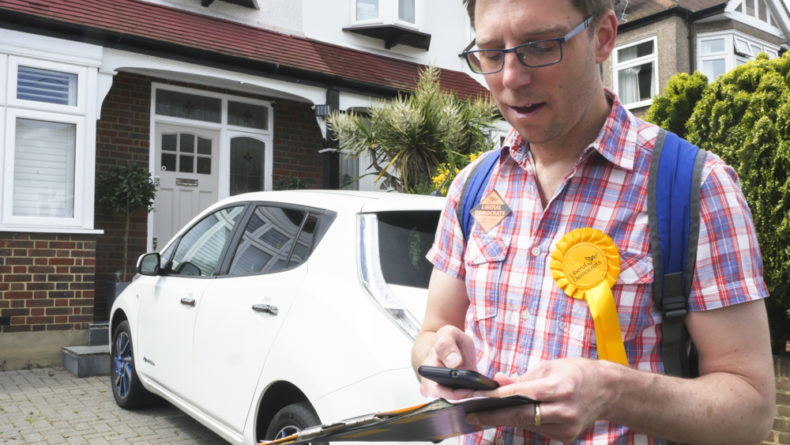Canvassing: what impact does it have on canvassers?

Welcome to the latest in my occasional series highlighting interesting findings from academic research. Today – the impact of canvassing on canvassers. Not voters, but the canvassers themselves.
If you follow the research into campaigning tactics, or come to campaigning training sessions,* you’ll be familiar with the idea that canvassing is a very effective political campaign tactic for persuading voters. But what’s the impact of doing canvassing on the canvassers themselves?
An answer to that comes in a piece of research from the USA by Joshua L. Kalla and David E. Broockman:
We report unique data from three real-world campaigns wherein activists attempted to persuade voters who had opposing viewpoints: two campaigns about a politicized issue (immigration) and a third about the 2020 Presidential election.
All campaigns trained activists to persuade voters through in-depth, two-way conversations.
In pre-registered studies, we find that these efforts reduced affective polarization among implementing activists, with reductions large enough to reverse over a decade’s increase in affective polarization.
Qualitative responses are consistent with these conversations producing perspective-getting, which reduced animosity by humanizing and individuating** outpartisans.
[Joshua Kalla and David Broockman, “Voter Outreach Campaigns Can Reduce Affective Polarization Among Implementing Political Activists”, OSF Preprints, 18 June 2021]
Some important caveats apply. This is one study, at an early stage (it’s a pre-print rather than published article), and it’s from the USA, which has a very particular form of political polarization. It’s also about canvassing which involves long conversations with voters rather than a quick bit of data gathering and goodbye.
But even so, it’s an interesting point, especially for political parties which give their members a meaningful say over party strategy and policy. Canvassing may be good not only for persuading voters but also for helping activists better understand voters too.
* Or, ahem, read a certain book.
** Sorry, not my word. What this means is that when canvassers spend talking to people with very different political views from themselves, the canvassers end up seeing them more as fellow humans rather than as some other group of people beyond the pale.
You can read the other posts in the Evidence-based campaigning: what the academic research says series here.
Leave a Reply